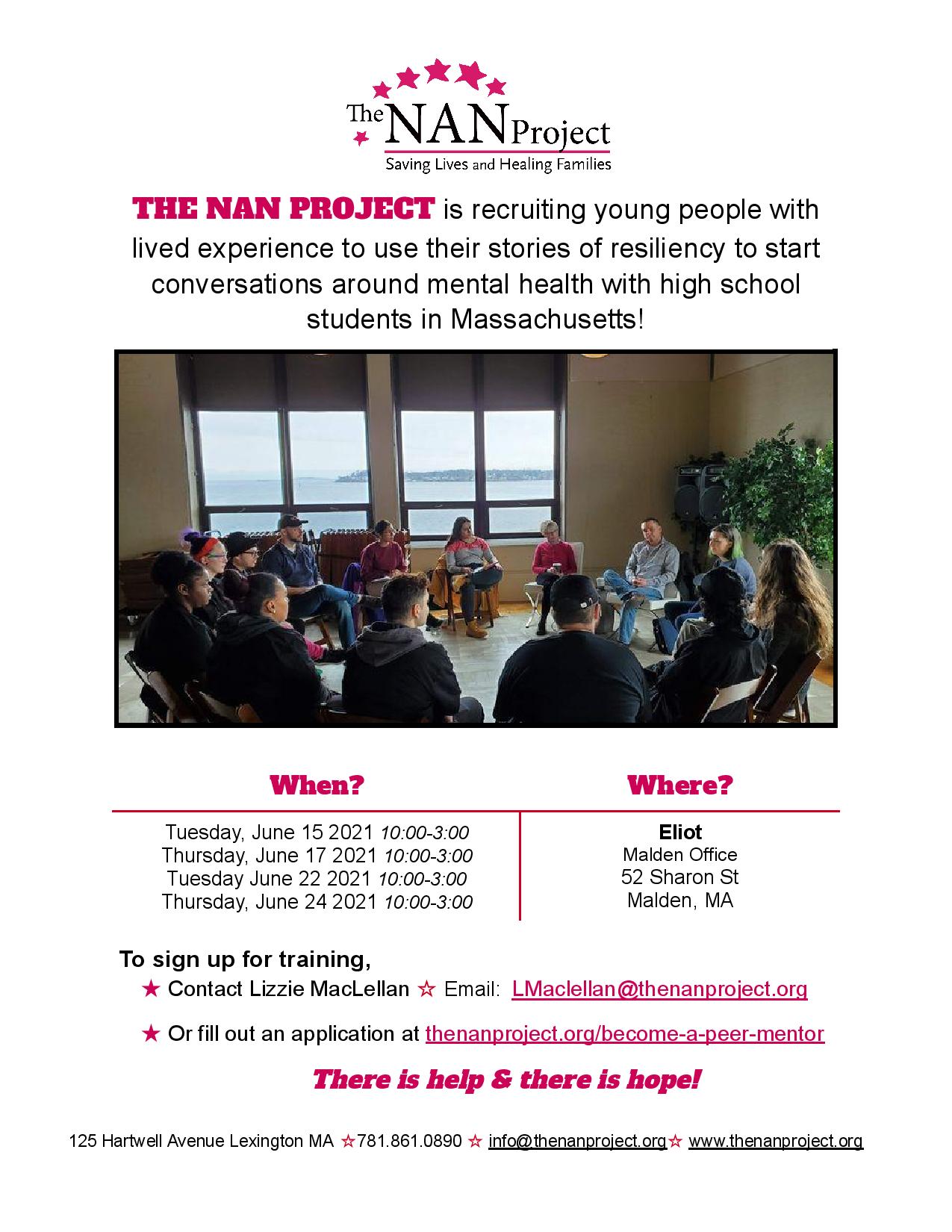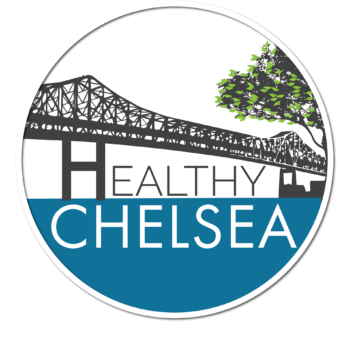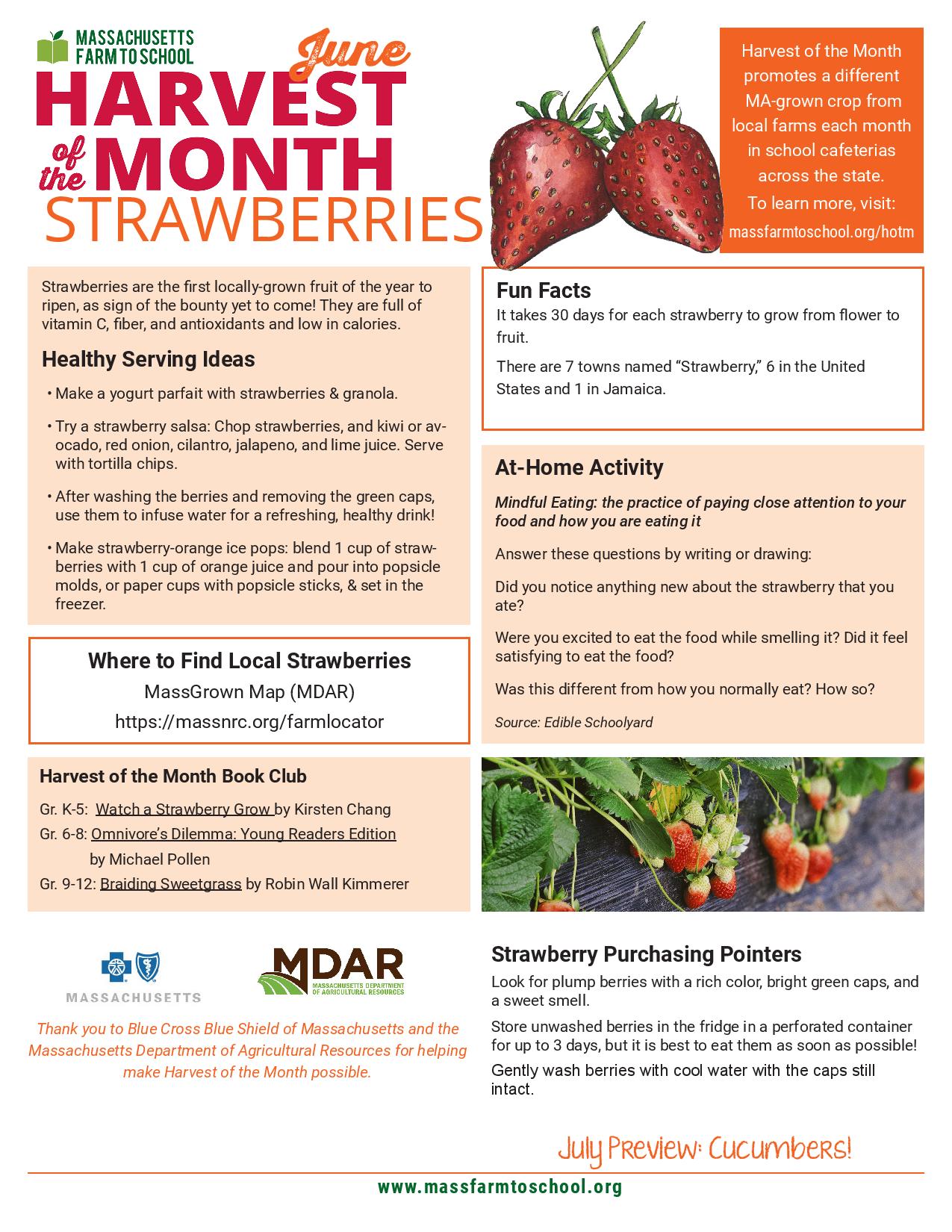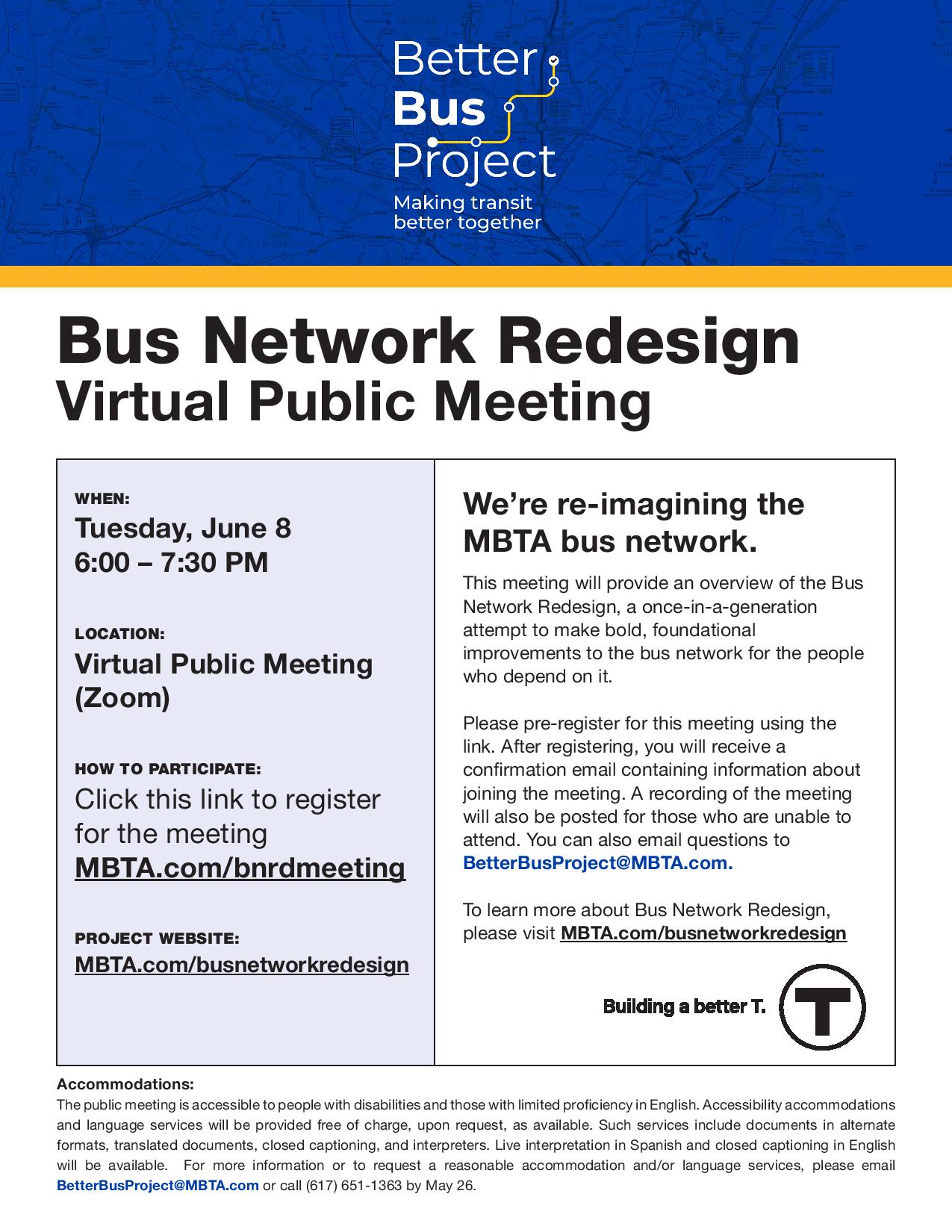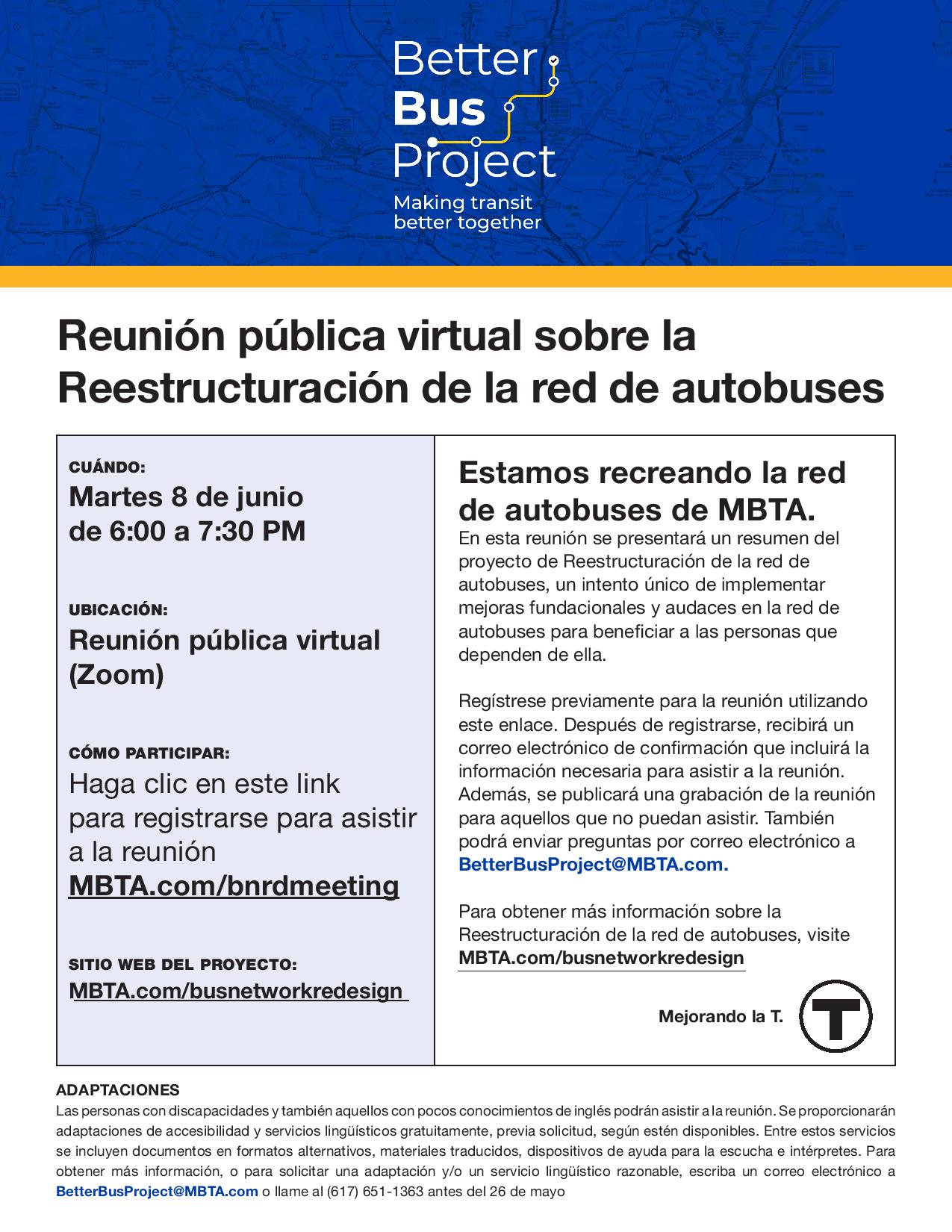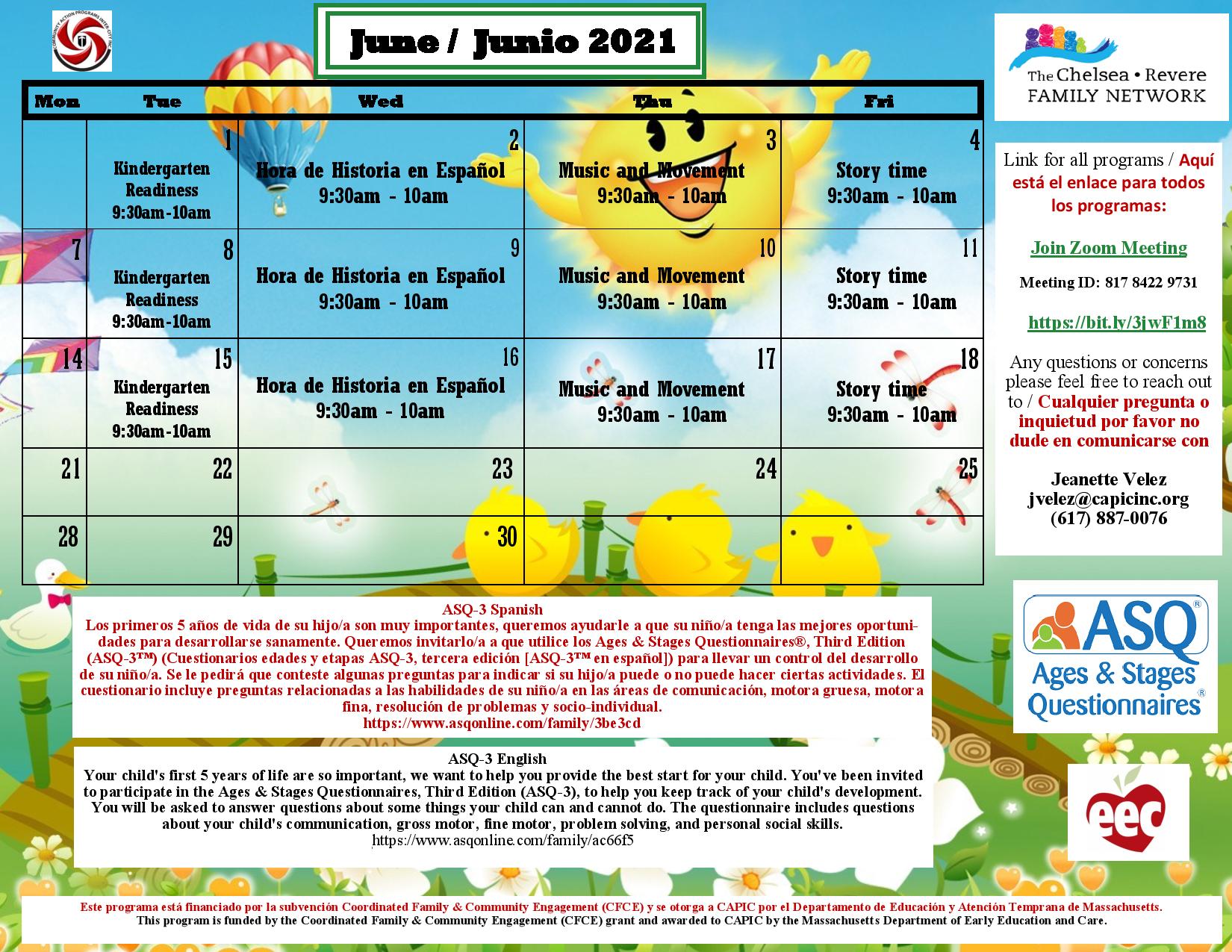The Bulletin Board is your place to find classes, ongoing programs, job listings, local contests, scholarships, and other opportunities. Events (one time & unique happenings) are also posted on the calendar. You may submit a post to the bulletin board here.
COVID-19 Clinics this weekend / Clínicas de vacunación contra COVID-19 este fin de semana
La Colaborativa presents Youth Vaccine Day! / ¡La Colaborativa presenta el Día de la Vacunas Jóvenes!


Bus Network Redesign Virtual Public Meeting / Reunión pública virtual sobre la Reestructuración de la red de autobuses
The MBTA Community Engagement team is reaching out today on behalf of the Bus Network Redesign project team.
The Bus Network Redesign is a complete re-imagining of the MBTA’s bus network to reflect the travel needs of the region for current and future bus riders. The redesign builds on the work already accomplished through the 2019 route changes, and will guide recommendations for an improved bus network that aims to create a more equitable network, simplify a complicated network, maximize access to opportunities, and make transit a competitive alternative to driving.
We are excited to host a virtual public meeting about this initiative on Tuesday, June 8 from 6:00 – 7:30 PM. We will be presenting an overview of the Bus Network Redesign which will include:
- The types of improvements we aim to achieve as a result of this project
- How this project relates to other Better Bus Project initiatives to improve the bus experience
- The metrics and data we are using to define success
- The project timeline for the planning and implementation process
After the presentation, we plan to answer questions about the project.
You can pre-register for the meeting here: https://zoom.us/meeting/register/tJIsd-mvqjIiGNw-dx6bbtLcxMYYNGKrLG0w. A meeting flyer is available in English, Spanish (Español), Portuguese (Português), Chinese – Simplified (汉语), Chinese – Traditional (漢語), Vietnamese (Tiếng Việt), and Haitian Creole (Kreyòl Ayisyen). We encourage you to share this information with your organization’s members and anyone else in your community who rides the bus.
Chelsea Seguro! You have the right to Health Insurance / Chelsea Seguro! Tu tienes derecho a un seguro médico
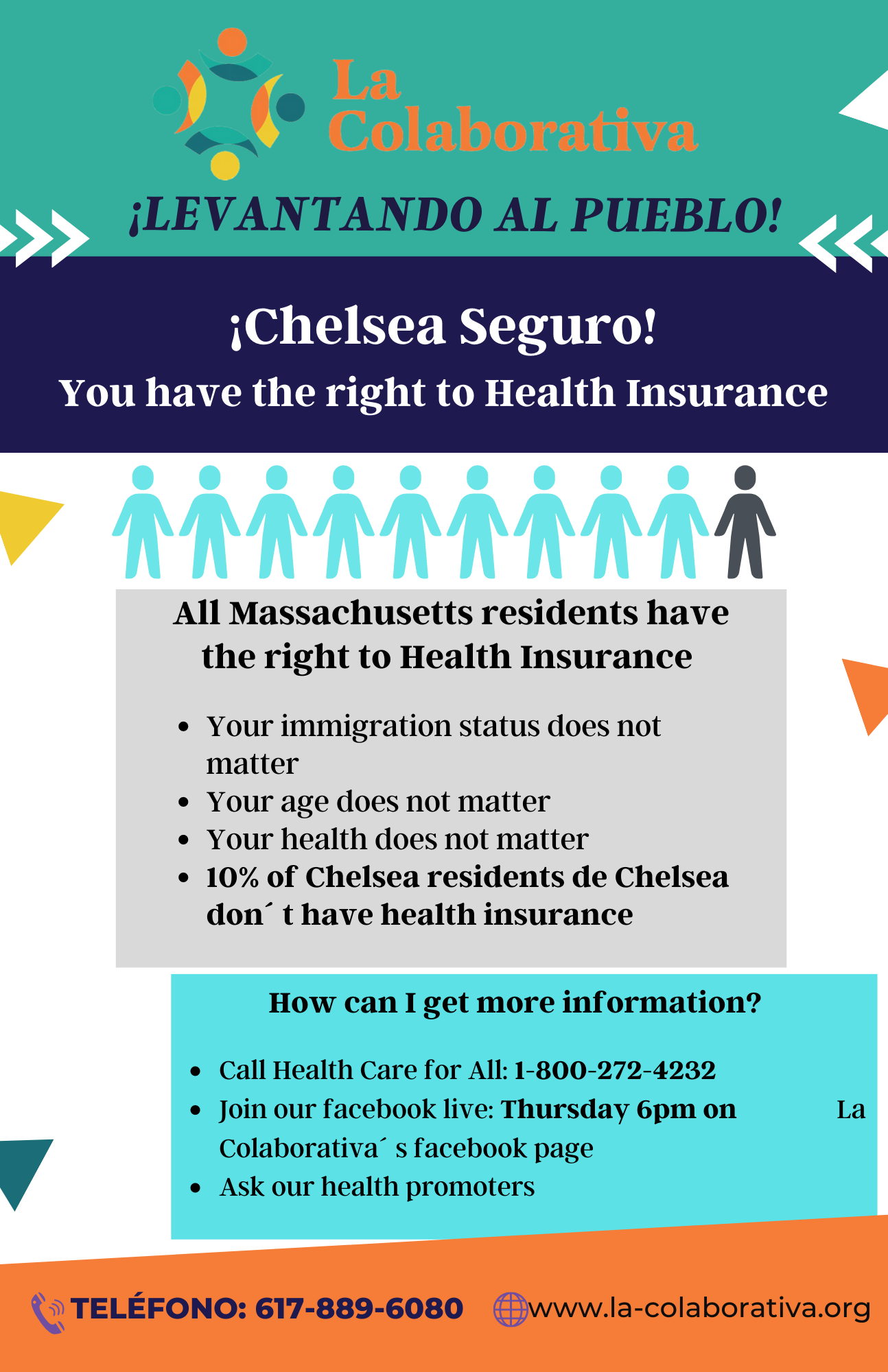
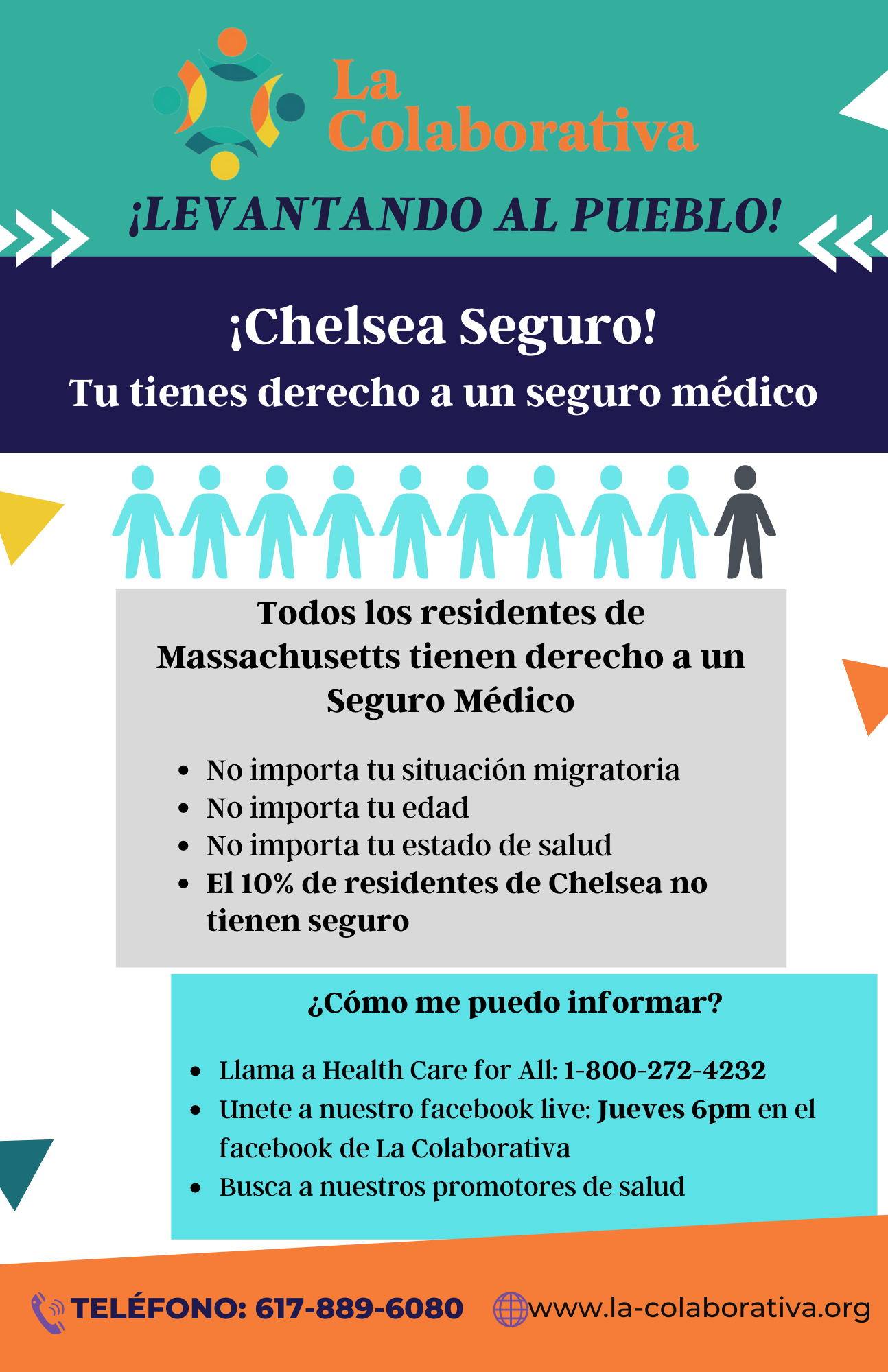
The Chelsea – Revere – Family Network June Schedule
Community Programs at Anita’s Garden in June / Programas Comunitarios en El jardin de Anita en Junio


Join Team GreenRoots!
Notice of change in Public Parking: Williams Street Parking Lots / Aviso de cambio en el estacionamiento público: Estacionamiento de Williams Street
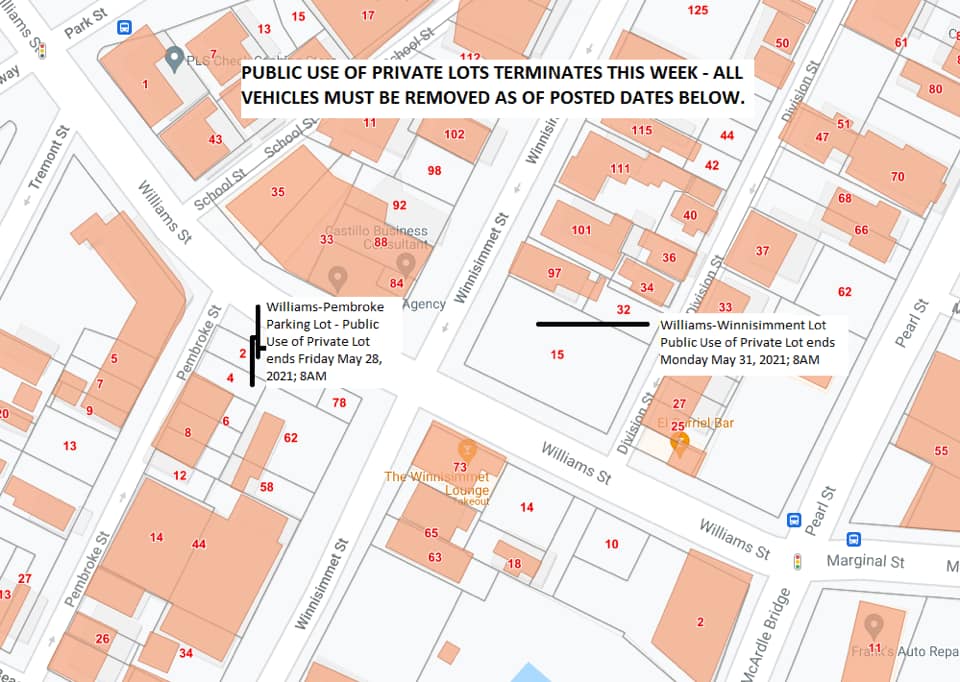
The NAN Project
